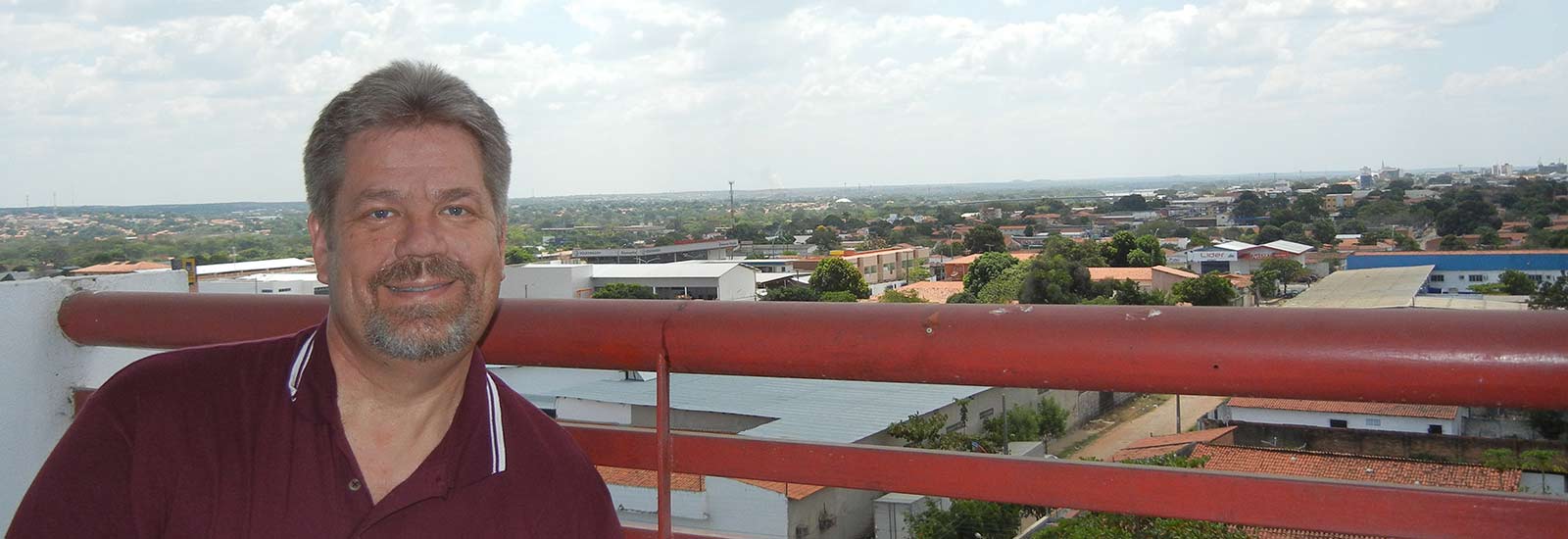Bruce Tissell’s story of innovation during Brazil’s COVID-19 shut down is an inspiration for all of us as we find creative ways to stay in business, do ministry, and make disciples in this unexpected time. Bruce is the Director at Baptist Seminary in Teresina, Brazil.
 North Brazil was hearing about and watching this new thing called the Corona Virus or Covid-19 in early 2020. No one really paid much attention to it as it was something in other parts of the world, or in the Southern part of Brazil (this is like another world to us in North Brazil).
North Brazil was hearing about and watching this new thing called the Corona Virus or Covid-19 in early 2020. No one really paid much attention to it as it was something in other parts of the world, or in the Southern part of Brazil (this is like another world to us in North Brazil).
In March, we started to see the numbers grow in Brazil, reaching Teresina, which is where I live. The government talked about maybe needing to close some things, but we were promised that nothing serious would happen for the long term.
On March 26, the government ordered everything to close almost immediately, except for essential services. Everyone was to stay home unless leaving became necessary. We had to wear masks whenever we went outside and use hand sanitizer. All schools were closed, but the government said the schools would open again in July.
The situation in Brazil and North Brazil worsened. Brazil even became the country with the second-most cases and deaths, just behind the United States. The restrictions tightened as time went by with a few weekends of total lockdown to try and slow the spread of the Covid-19.
When the government closed schools, the leadership at Baptist Seminary in Teresina decided to shift the rest of our classes for the first semester of the year to online classes. Teachers and students didn’t find this easy.
We all struggled through trying to learn how to hold classes and what platform works best for us. Teachers had to adapt their teaching to the online world. This meant no traditional whiteboards and dealing with keeping the student’s attention on the instructor. Lack of equipment and technical expertise also hindered us.
In Brazil, not everyone has a cellphone, tablet, or computer. Not everyone has internet of which is needed to participate in the classes. Internet failure in the middle of a class was not uncommon. Even though Brazil claims to have 4G or 5G internet, it is not always what is promised and the cost of contracting for the faster internet is prohibitive for most people.
Things became so bad with on-line classes that I, as director, ordered all classes to stop for two weeks to give the teachers time to rework their lesson plans and figure out how to use the technology that was available. It also gave people, professors, and students time to re-adjust the other parts of their lives so they could continue to attend classes.
Other universities, schools, and seminaries closed, but we were able to remain open and finish the semester in mid-July. Normally the semester ends in early June, but with all of the changes and reworking of classes, the extra time was needed. There were only three classes (Greek, Hebrew, and Old Testament survey) that did not finish. We struggled to try to find a way to teach languages online. God blessed our perseverance.
With all schools still closed for physical classes by the government, we were able to start the second semester during the first part of August with online classes. This time everyone knew how to prepare and teach classes online. All classes are now being taught, even Greek and Hebrew. The seminary hopes to return to physical classes sometime in October of this year, but if necessary, we can finish the school year online.
While many schools have lost this entire year of teaching, the Baptist Seminary in Teresina has been able to adapt and try new formats of teaching so that, if the students apply themselves and attend the online classes, they will not lose this school year.
The Covid-19 situation has even been a blessing. It has pushed the Seminary into rethinking how to handle the extension classes. Now that the professors are more comfortable and knowledgeable about teaching online, the Seminary has plans to spend the next couple of months preparing many of the extension classes to be taught online. This could expand the reach of the extension classes and help more men and women prepare for the ministry that God has called them to–something that may not have happened next year, if not for the Covid-19 situation.
Image of Brazil by Tumisu from Pixabay


